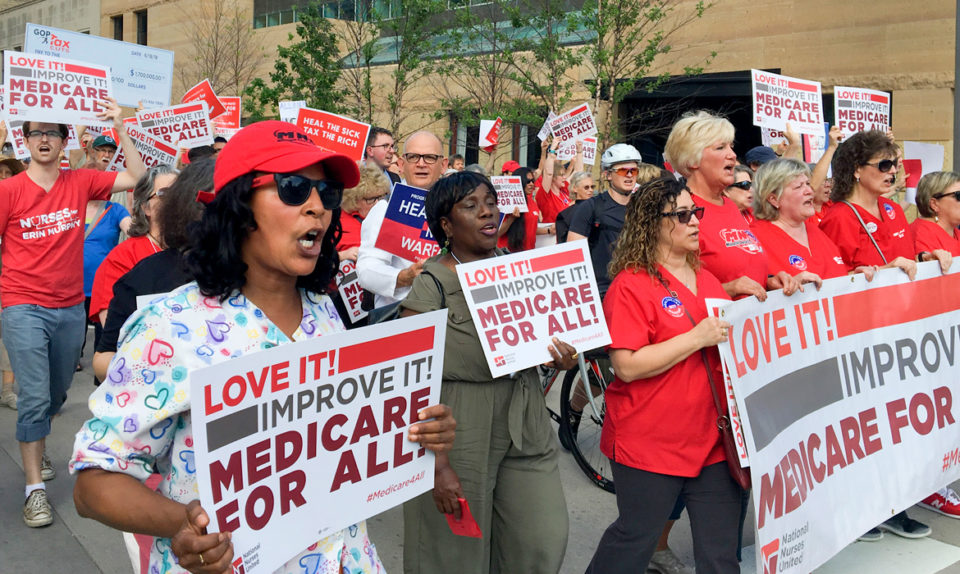- Comprehensive coverage. That would include primary care, hospital and outpatient services, prescription drugs, dental, vision, women’s reproductive services, maternity and newborn care, mental health, long term care services, and supports for people with disabilities, seniors, and others who need them.
- Real universal health care. The U.S. uninsured rate has risen to a four year high following the sabotage inflicted by the Trump Administration. But even under the Affordable Care Act, 28 million were uninsured and tens of millions more were underinsured. Medicare for All means guaranteed access to care, not just to private insurance.
- No premiums, no deductibles, no co-pays. An end to the skyrocketing out of pocket costs that have produced an escalating national crisis in access to care for people “with insurance.” That scandal is perhaps best symbolized by this glaring report – one-third of all GoFundMe campaigns are for medical expenses, a shocking 250,000 campaigns every year.
- Genuine freedom of choice. One medical card, good at any hospital, outpatient clinic, surgery center, doctor’s office, lab, and any other provider. No more surprise “out of network” bills, restrictions, denials or other abuses characteristic of the present system.
- An end to corporate health care price gouging. No more $48,329 allergy tests. No more $60 bills for a tablet of ibuprofen. No more $17,850 for a urine test, $238 eyedrops, or a $5,571 tab to sit in an ER waiting room. This legislation will prevent providers from overcharging and fattening bills for executive pay packages or shareholder payouts.
- Protection of health services for veterans, to continue to receive medical care through the expertise of the Veterans Administration caregivers, and indigenous people through the Indian Health Services.
Giant steps – the next stage in the fight for Medicare for All
The long journey toward transforming our health care system to ensure that all our nation’s people get the care they need is entering its next major phase.
In the coming days, Rep. Pramila Jayapal, with dozens of House co-sponsors, is expected to introduce an updated version of a House Medicare for All bill, a significant step toward a real reform that is now favored by up to 70 percent of people.
For the first time, following the House turnover in November, the prospects for real action in the House on Medicare for All look promising.
This historic moment, driven by pressure not from the top, but from the grassroots, reflects a sea change in the political landscape that should put everyone on notice.
Momentum to replace a callous system premised on profiteering off sickness with a humane model based on patient need and health security has been steadily building.
From Feb. 9 to 13, Medicare for All activists from throughout the U.S. will be gathering at 130 barnstorms, sponsored by National Nurses United, to learn the ins and outs of organizing our communities and to persuade additional legislators to sign onto the bill.
At the heart of the new bill will be an unwavering commitment to the bedrock principle that health care is a right for everyone living in the U.S. Key elements are expected to include:


